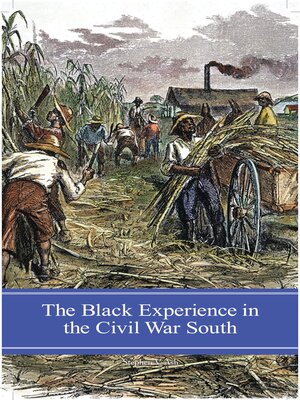The Black Experience in the Civil War South
ebook ∣ Reflections on the Civil War Era
By Stephen V. Ash

Sign up to save your library
With an OverDrive account, you can save your favorite libraries for at-a-glance information about availability. Find out more about OverDrive accounts.
Find this title in Libby, the library reading app by OverDrive.



Search for a digital library with this title
Title found at these libraries:
| Library Name | Distance |
|---|---|
| Loading... |
The first book of its kind to appear in a generation, this comprehensive study details the experiences of the black men, women, and children who lived in the South during the traumatic time of secession and civil war.
The Black Experience in the Civil War South is the first comprehensive study of the Southern black wartime experience to appear in a generation. Incorporating the most recent scholarship, this thematically organized book does justice to the richness of its subject, looking at the lives of blacks in the Confederate states and the nonseceding Southern states; at blacks on farms and plantations and in towns and cities; at blacks employed in industry and the military; and at black men, women, and children.
Drawing on memoirs, autobiographies, and other original source materials, the author details the experiences of blacks who took up residence in Union "contraband camps" and on free-labor plantations and those who enlisted in the Union army. He introduces individuals who escaped from slavery, as well as the small minority of Southern blacks who were free when the war began. Most significantly, this revealing study deals not only with those who gained freedom during the war, but those whose freedom came only after the conflict's end.
The Black Experience in the Civil War South is the first comprehensive study of the Southern black wartime experience to appear in a generation. Incorporating the most recent scholarship, this thematically organized book does justice to the richness of its subject, looking at the lives of blacks in the Confederate states and the nonseceding Southern states; at blacks on farms and plantations and in towns and cities; at blacks employed in industry and the military; and at black men, women, and children.
Drawing on memoirs, autobiographies, and other original source materials, the author details the experiences of blacks who took up residence in Union "contraband camps" and on free-labor plantations and those who enlisted in the Union army. He introduces individuals who escaped from slavery, as well as the small minority of Southern blacks who were free when the war began. Most significantly, this revealing study deals not only with those who gained freedom during the war, but those whose freedom came only after the conflict's end.







